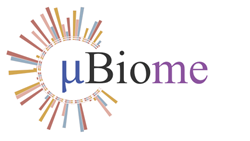Cambridge
See the following -
Hackathon to Focus on Open Source Biometric System for mHealth in Poor Countries
 A team from Redgate Software, the Cambridge UK based company behind the world’s leading SQL Server and .NET development tools, is devoting a week to work on the code for an open source biometric fingerprint system that will improve the lives of the poor in the developing world. The system is used by SimPrints, a non profit tech company working with the Gates Foundation and charities like Médecins Sans Frontières to design a low cost biometric scanner that can be deployed in the field. With the scanner, a health worker can swipe a patient’s fingerprint to find and view the correct health records on a mobile device, either online or offline.
A team from Redgate Software, the Cambridge UK based company behind the world’s leading SQL Server and .NET development tools, is devoting a week to work on the code for an open source biometric fingerprint system that will improve the lives of the poor in the developing world. The system is used by SimPrints, a non profit tech company working with the Gates Foundation and charities like Médecins Sans Frontières to design a low cost biometric scanner that can be deployed in the field. With the scanner, a health worker can swipe a patient’s fingerprint to find and view the correct health records on a mobile device, either online or offline.
- Login to post comments
uBiome Launches First Microbiome App Using ResearchKit; Initial focus is on Relationship Between Gut Bacteria and Weight Loss
 iPhone users can now explore their gut bacteria, and also contribute to research about the relationship between the microbiome and human body weight with the launch of a ground-breaking app launched by the microbiome-testing company uBiome, which uses the ResearchKit framework designed by Apple. The app itself is free, and the first 1,000 users will also qualify for free microbiome testing, usually priced at $89.
iPhone users can now explore their gut bacteria, and also contribute to research about the relationship between the microbiome and human body weight with the launch of a ground-breaking app launched by the microbiome-testing company uBiome, which uses the ResearchKit framework designed by Apple. The app itself is free, and the first 1,000 users will also qualify for free microbiome testing, usually priced at $89.
- Login to post comments
What Can You do with Open Data?
 Play a word association game and the word "open" will almost surely be followed by "source." And open source is certainly an important force for preserving user freedoms and access to computing. However, code isn't the only form of openness that's important. Open data has been discussed for at least a decade. At the OSCON conference in 2007, Tim O'Reilly kicked off a bit of a ruckus when he suggested that open data might actually be more important than open code. Open data in this context mostly referred to the ability to export the user-created "Web 2.0" data, which was becoming important at that time. Tim Bray, then at Sun Microsystems, highlighted the issue when he wrote...
Play a word association game and the word "open" will almost surely be followed by "source." And open source is certainly an important force for preserving user freedoms and access to computing. However, code isn't the only form of openness that's important. Open data has been discussed for at least a decade. At the OSCON conference in 2007, Tim O'Reilly kicked off a bit of a ruckus when he suggested that open data might actually be more important than open code. Open data in this context mostly referred to the ability to export the user-created "Web 2.0" data, which was becoming important at that time. Tim Bray, then at Sun Microsystems, highlighted the issue when he wrote...
- Login to post comments